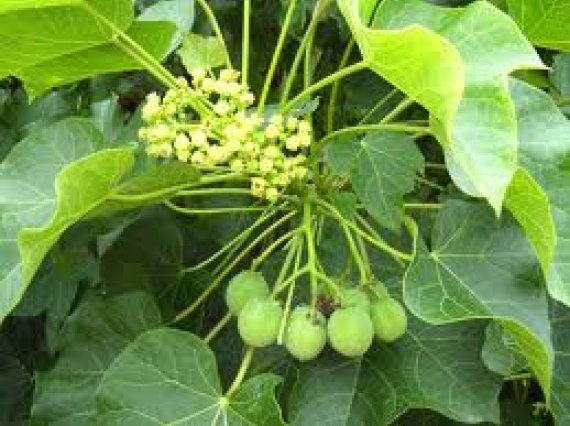Four years ago, the energy crop jatropha was a sensation. Goldman Sachs labelled it the major future source of energy, and investors leased or bought thousands of hectares of land in Africa to set up jatropha plantations. The economic crisis halted this modern gold rush. Jatropha is an interesting crop because it grows well on poor soils and its seeds comprise 34 percent oil. But it’s not exactly a cash cow. Farmers or investors usually do not earn more than 300 euros a year from one hectare of jatropha. Jatropha has more uses, though. The Indonesian PhD candidate Dianika Lestari examined the proteins present in the pressed remains. These proteins actually have a nutrition value but the pressed remains also contain very poisonous phorbol-esters. Since it would be too tedious to remove these poisonous substances, the proteins are only suitable for use in technical and chemical applications. Subsequent research showed that they can be used as a bonding agent in glues and as surface-active substances (soap-like structures). Lestari also determined the gains for jatropha growers were the proteins to be used in chemistry. If oil is the only product from the seeds, one kilogram of seeds can make 21 eurocents in countries such as Indonesia. If the proteins are also used, another 19 cents can be added to the till. The net profit of jatropha cultivation could then be raised from three hundred to more than a thousand euros per hectare. This calculation is hypothetical, stresses Wim Mulder of Biobased Products, as there are no companies yet which process jatropha proteins. Lestari’s research is part of a bigger KNAW-sponsored research programme involving biorefining of jatropha. Two other Wageningen and five Groningen PhD candidates from Indonesia are still doing research on this. Dianika Lestari received her PhD degree from Professor Johan Sanders of the Valorisation of Plant Production Chains Group on 23 January.
Energy crops also good for chemical industry
Jatropha is chiefly considered as an energy crop. The oil in its seeds is suitable for biofuel while the leftovers are considered as waste. But these pressed remains consist of proteins which can be used in technical applications, as PhD candidate Dianika Lestari has discovered.

